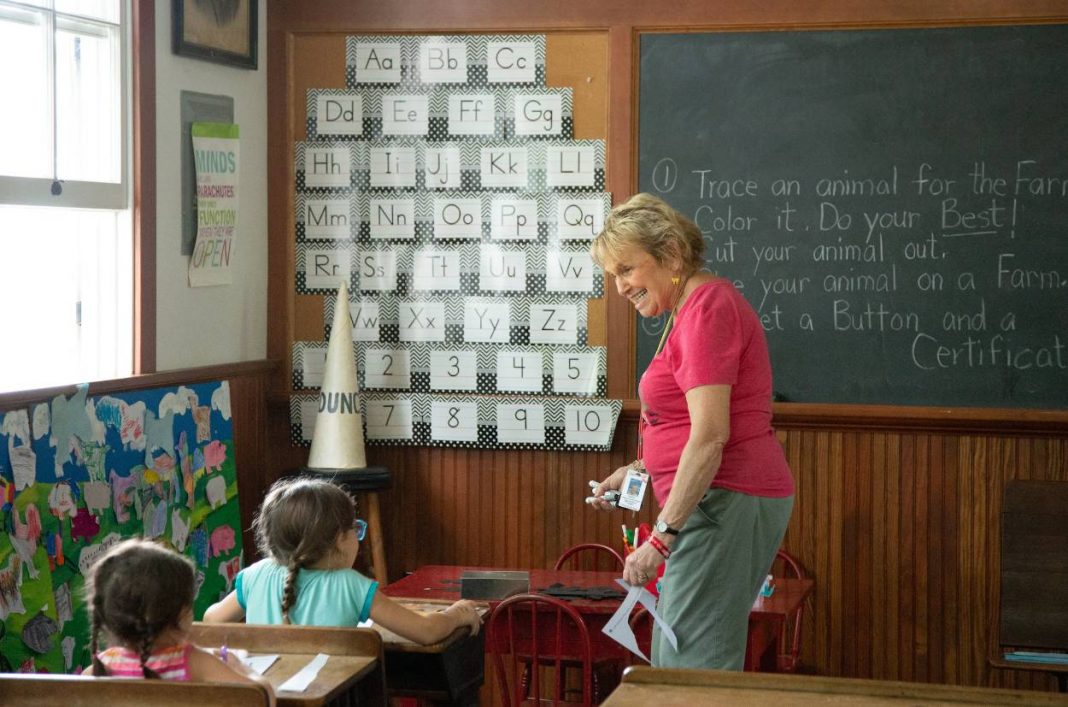Did you know that the first kindergarten was founded in Germany in 1837 by Friedrich Fröbel? Or does the word ‘kindergarten’ mean ‘children’s garden’ in German? Kindergarten, the first formal educational experience for many young children, has been around for nearly two centuries and has undergone many changes since its inception. From finger painting to learning the alphabet, the kindergarten experience is designed to introduce children to the joys of learning in a fun, engaging way.
Math & ELA | PreK To Grade 5
Kids see fun.
You see real learning outcomes.
Watch your kids fall in love with math & reading through our scientifically designed curriculum.
Parents, try for free Teachers, use for free
Kindergarten is a crucial first step in a child’s formal education, but parents are sometimes bothered by the questions like “What age do kids start kindergarten? At what age is Kindergarten entry mandated by the state? At what age do you start kindergarten if your child is not kindergarten ready? Age is a significant factor to consider, several other aspects should be considered to ensure a successful start to your child’s academic journey. So what exactly is kindergarten all about? Let’s explore the age requirements, benefits, and fun activities of this vital stage in a child’s education. Additionally, we will provide helpful suggestions to guide parents in making a well-informed choice that is best for their child’s academic future.
Related Reading: Prepare Your Child for the First Day of Kindergarten
The Right Age to Start Kindergarten
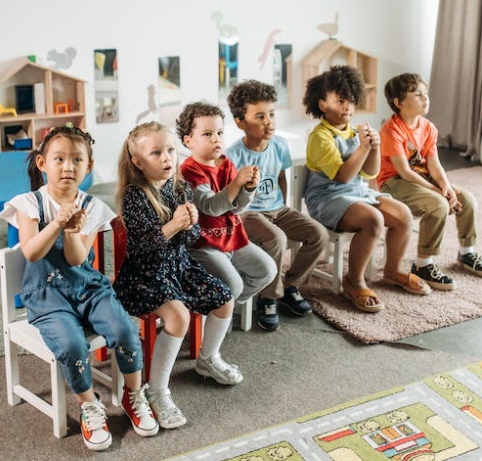
Kindergarten is often the first formal academic experience for young children. It marks the beginning of their educational journey and is an important milestone. But at what age do you start Kindergarten? – There is no one answer fits all children. Here we will determine the right age for children to start kindergarten, considering the factors that play a role in this decision.
Those factors include the child’s developmental readiness, the specific kindergarten program, and the school district’s requirements.
In general, Children’s average kindergarten age range lies between 4 to 6 years old. While age is an important consideration, developmental readiness is also a key factor in determining when a child should start kindergarten. Some children may be ready to start kindergarten at age 4, while others may not be ready until age six or later. It’s important to consider each child’s individual needs and abilities when making this decision.
Ultimately, the decision of when to start kindergarten should be made by parents in consultation with educators and other professionals who can help assess a child’s readiness for school.
5 Factors Influencing Kindergarten Start Age

Did you know that kindergarten is not mandatory in all U.S. states? Nineteen states require kids to attend kindergarten, including Nevada, New Mexico, Tennessee, and Washington, D.C. However, in states like Louisiana and Nebraska, children may skip kindergarten if they can demonstrate readiness through an assessment before entering first grade.
Let’s examine some main factors to decide when a child should start kindergarten. These elements will provide insights into making an informed decision.
1. Age Requirements
Many parents may wonder, ‘How old is the average kindergartner?’ The kindergarten age requirement is the most critical factor in determining when a child should start. Most states require a child to be five years old on or before September 1st of the year they enter kindergarten. However, some states may have different cut-off dates, so parents need to check with their school district.
2. Developmental Readiness
Another vital factor to consider is the child’s developmental readiness. While some children may be academically ready for kindergarten at five, others may not. Parents need to assess their child’s physical, emotional, and cognitive development before enrolling them in kindergarten. Signs of readiness include following directions, communicating needs and feelings, and demonstrating basic literacy and numeracy skills.
3. Social and Emotional Maturity
Social and emotional maturity are also critical factors that can influence a child’s readiness for kindergarten. Kindergarten is a social setting where children interact with peers and teachers, so children need social skills to navigate these interactions. Parents should observe their child’s ability to make friends, play cooperatively with others, and manage emotions before enrolling them in kindergarten.
4. Family Circumstances
Family circumstances can also impact the decision of when to start kindergarten. For example, if both parents work full-time, they may want their child to start kindergarten earlier so that they have childcare during the day. On the other hand, if the family is going through a significant life change, such as a move or a divorce, parents may choose to delay kindergarten enrollment to reduce stress on the child.
5. Individual Factors
Every child is unique and may have individual factors that influence their readiness for kindergarten. For example, a child with a developmental delay may benefit from an extra year of pre-kindergarten before starting kindergarten. Similarly, a child with a summer birthday may benefit from waiting an additional year to start kindergarten so they are not the youngest in their class.
Ultimately, at what age a child should start kindergarten should be based on a combination of these factors, as well as the individual needs and circumstances of each child and family. Moreover, parents should also take into account any extenuating circumstances that may impact their child’s ability to start kindergarten, such as health issues or developmental delays.
5 Reasons Why Parents Redshirt Their Kids?
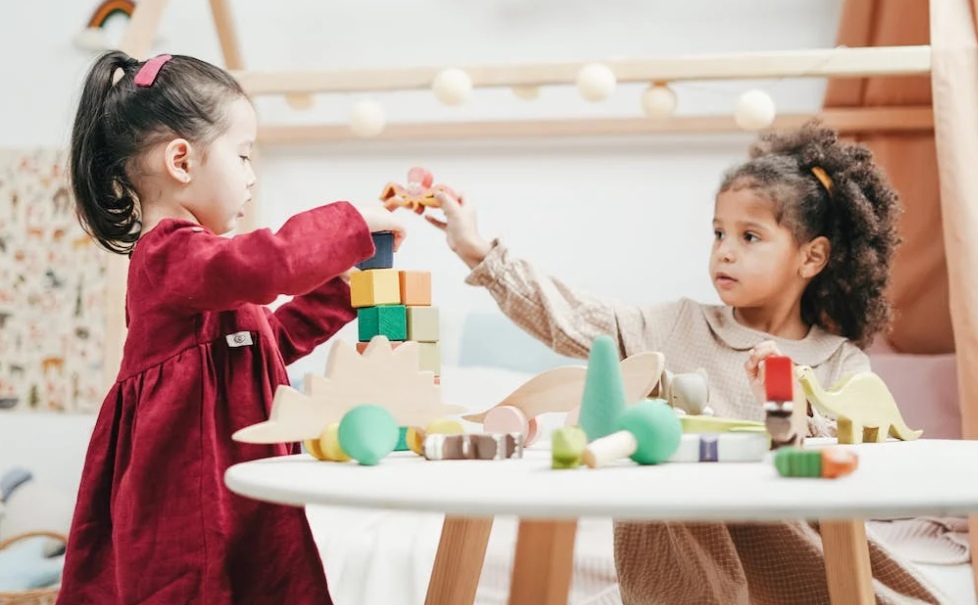
Redshirting, a term borrowed from college athletics, has made its way into the realm of education. In the context of schooling, redshirting refers to the practice of intentionally delaying a child’s entry into kindergarten or starting them a year later than the typical age. This strategy is often employed by parents who believe their child might benefit from the additional time to develop socially, emotionally, or academically before formal schooling. The concept has sparked discussions among educators, parents, and researchers, with considerations ranging from its potential advantages to its long-term implications on a child’s educational journey.
However, it is important to note that redshirting is not always the best choice for every child and should not be solely based on their age. Instead, there are a range of factors to consider before deciding to redshirt. Let’s take a look at them!
- Academic Preparedness: Redshirting can provide extra time for a child to develop their cognitive skills, such as literacy and numeracy, which can give them a more solid foundation once they enter school.
- Confidence Building: An extra year can boost a child’s confidence, enabling them to enter school feeling more secure and ready to engage with peers and teachers.
- Attention and Focus: Parents might feel that a slightly older child will have a longer attention span and better focus, which could be advantageous in a classroom setting.
- Health Concerns: Children with developmental delays, learning disabilities, or health issues might benefit from the extra year to address these concerns before entering school.
- Cultural Considerations: In some cultures, delaying a child’s entry into formal education is common. For example, in some Asian cultures, it is common to start school at the age of six or seven. Parents from these cultures may choose to redshirt their children to align with their cultural norms.
However, it’s important to note that redshirting is a complex decision with potential benefits and drawbacks. Some studies have suggested that redshirting can provide short-term benefits for children, particularly in terms of academic achievement. However, other studies have suggested that the benefits of redshirting may be limited or even negative in the long term. For example, an older child may become bored or disengaged if they are academically ahead of their peers or struggle to keep up if they are academically behind. Additionally, older children may experience social challenges, such as feeling out of place or struggling to make friends with peers a year younger.
Related Reading: Homeschool Kindergarten Best Practices and Strategies
Is your child Kindergarten Ready
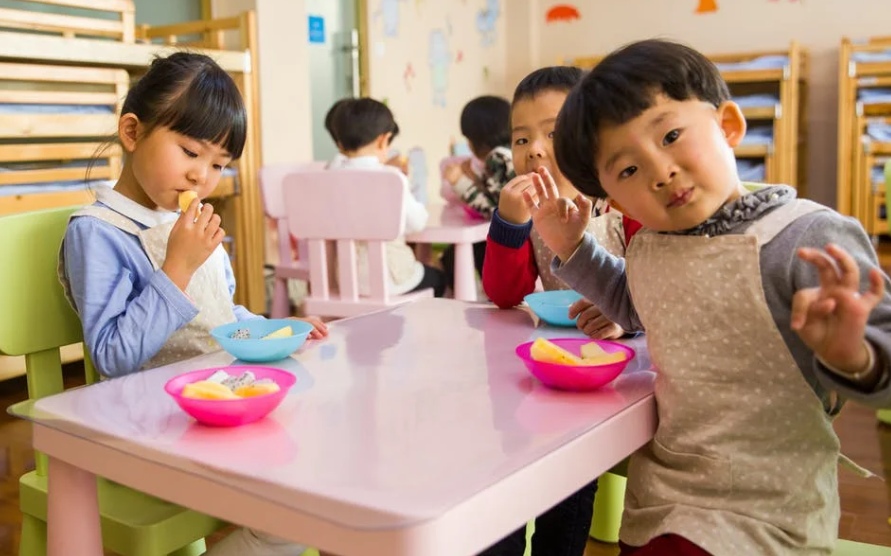
Determining if your child is ready for kindergarten involves assessing various aspects of their development. Starting too early or too late can potentially impact a child’s academic and social development.
On the one hand, if a child starts kindergarten too early, they may not have the necessary skills and maturity to keep up with their peers. This can lead to academic struggles and social isolation, as they may have difficulty following instructions and paying attention. On the other hand, if a child starts kindergarten too late, they may miss significant learning opportunities and social interactions with their peers. They may feel out of place or socially isolated, as they are older than their classmates and may struggle to relate to them.
Assessing a child’s readiness for kindergarten involves evaluating their cognitive, social, emotional, and physical development. However, we should remember that each child progresses at a unique pace, and kindergarten readiness extends beyond academics to encompass social and emotional growth. When considering the appropriate kindergarten age and readiness, factoring in both aspects is essential. Ultimately, the decision to enroll your child in kindergarten should align with their individual needs, and collaborating with their teachers will help you make an informed choice.
As a parent, your role in preparing your child for kindergarten is pivotal. Kindergarten readiness encompasses an array of skills spanning social, motor, and cognitive development. Parents can boost their child’s readiness by engaging them in activities that nurture social skills, fine and gross motor skills, and cognitive growth. It can involve practicing social interactions at home, participating in physical exercises, and integrating games and activities that support cognitive development into daily routines.
Related Reading: 20 Best Memory Games for Kids to Enhance Cognitive Skills
5 Skills Taught In A Kindergarten
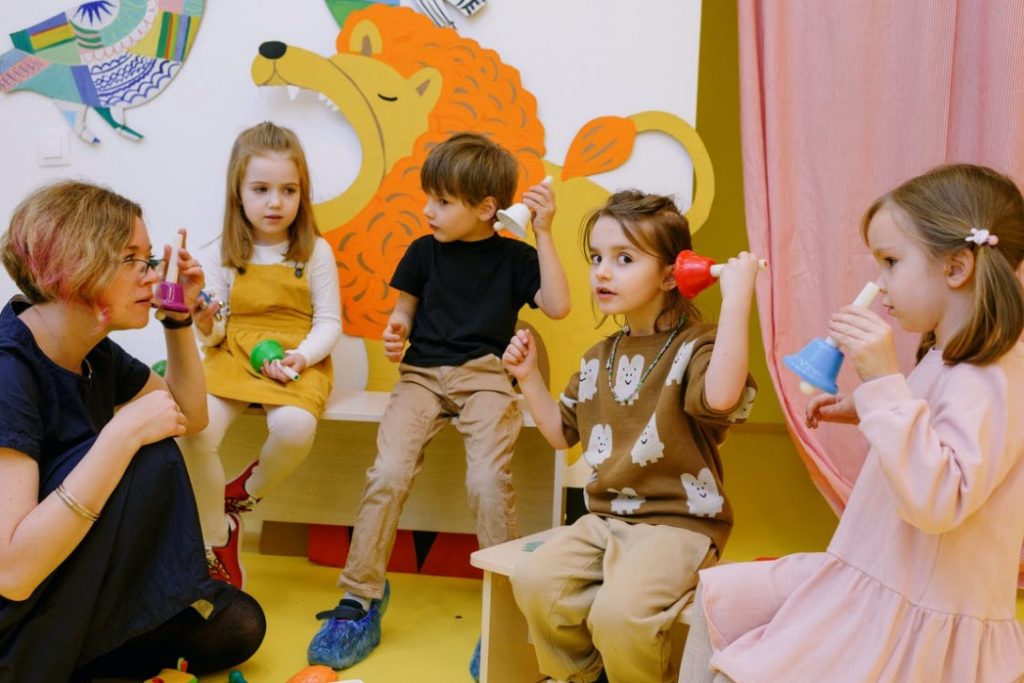
In kindergarten, children typically engage in diverse activities that promote their overall development, laying the foundation for their educational journey. While specific curriculum varies by school and region, here are common areas of learning in kindergarten:
- Social Skills: Children learn to work, play with others, take turns, and share toys and materials. They learn to follow routines and rules and to show respect and empathy for others.
- Language and Literacy Skills: Children learn to recognize as well as write the letters of the alphabet, and to sound out and read simple words and sentences. They also learn basic grammar and sentence structure and develop their listening and speaking skills.
- Math Skills: Children learn to count and recognize numbers and to add and subtract simple numbers. They also learn basic geometry and measurement skills.
- Science Skills: Children learn about the natural world, including the seasons, plants, animals, and weather. They also learn about simple machines, energy, and the properties of matter.
- Physical Development: Children cultivate their gross motor skills through activities like running, jumping, and climbing, while their fine motor skills flourish through tasks like cutting, drawing, and writing.
Overall, kindergarten provides children with a well-rounded education that sets the foundation for their future academic and social success. Kindergarten teachers use various teaching methods, including hands-on activities, group work, and individualized instruction, to help children learn and grow in an engaging and fun environment.
Related Reading: What Do Kids Learn in Kindergarten: Overview, Subjects & Skills
Conclusion
“All I Really Need to Know I Learned in Kindergarten” – Robert Fulghum
The above quote is also the title of the author Robert Fulghum’s book. Its title outlines the lessons typically acquired in American kindergarten classrooms. He elaborates on how the world could be a better place if grown-ups applied the fundamental principles embraced by children – concepts such as sharing, showing kindness, and taking responsibility for their surroundings.
Now, the decision as to when to start this journey so eventful is significant. While age is an important factor, it is not the only one. It’s essential to evaluate your child’s social, emotional, cognitive, and physical development, as well as their individual needs and personality.
By assessing these factors and seeking advice from educators and healthcare professionals, you can make an informed decision about when to enroll your child in kindergarten. Ultimately, the goal is to set your child up for success by ensuring that they are emotionally, socially, and academically prepared for the challenges and opportunities of this critical stage in their educational journey.
Frequently Asked Questions (FAQs)
What if my child misses the kindergarten entry-age cut-off?
Suppose your child misses the kindergarten entry age cut-off in your state. In that case, you may need to consider alternative education options such as preschool or home-schooling until they are old enough to enroll in kindergarten.
Can starting kindergarten too early have negative effects on my child?
Starting kindergarten too early may lead to academic and social struggles for some children, but every child is different. It’s important to consider your child’s individual needs and readiness before making a decision.
What is pre-kindergarten age?
Pre-kindergarten, also known as pre-K or PK, is an educational program designed for children who are too young to enroll in kindergarten. The age range for pre-kindergarten varies depending on the program and the state, but generally, children are between 3 and 5 years old.

















